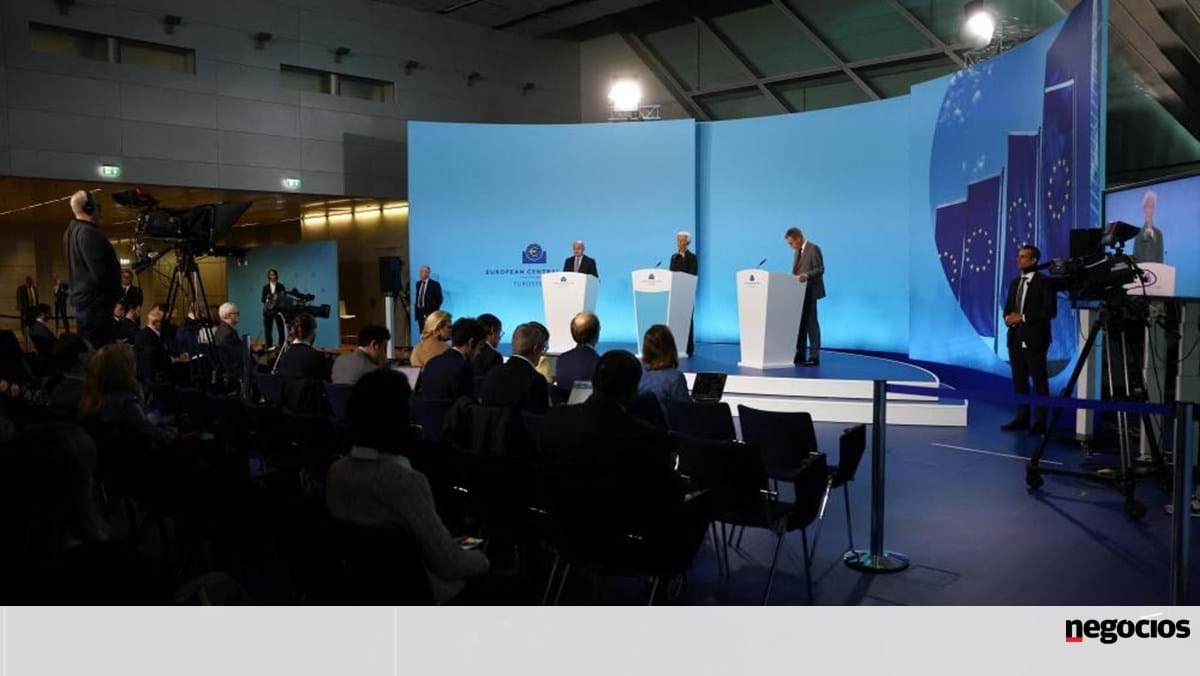The European Central Bank (ECB) raised benchmark interest rates in the eurozone by another 50 basis points. The announcement, which is in line with market expectations, was made this Thursday after the monetary policy meeting, as monetary authority led by Christine Lagarde is still racing to repeat the increase in March.
“The Governing Council will pursue a path of significant interest rate hikes at a steady pace and will keep them at sufficiently restrictive levels to ensure a timely return of inflation to its medium-term target of 2%. Today, the Governing Council decided to increase the ECB’s three main interest rates by 50 basis points, and is expected to continue to increase.”
From February 8, the interest rate applicable to major refinancing will increase to 3%, while the interest rate applicable to the marginal lending facility will increase to 3.25% and the rate applicable to the perpetual deposit facility will increase to 2.5%. And the path will not stop here.
“Given the pressures on core inflation, the Governing Council intends to raise interest rates by another 50 basis points at the next dedicated monetary policy meeting, in March, and will then assess the subsequent course of monetary policy,” he said, advocating keeping interest rates at the same level. Restricted levels “will over time reduce inflation by curbing demand, and will also protect against the risk of a sustained upward shift in inflation expectations.”
Throughout 2022, the European Central Bank raised interest rates – for the first time since 2011 – four times, for a total of 200 basis points. The Harmonized Index of Consumer Prices (HICP) eased in January, but is still at 8.5% (compared to 9.2% in December). Core inflation, which allows measuring the level of rootedness of inflation in the economy, is 7%.
Buying debt will benefit companies with better climate performance
Besides the decision on interest rates, the Board also decided on ways to reduce debt purchases under the Asset Purchase Program (APP). The Central Bank had already advanced, in December, that it would reduce the APP portfolio by an average of 15 billion euros per month, from the beginning of March until the end of June 2023. It now explains how it will work.
“Partial reinvestment will, in general, be made in accordance with current practice. More specifically, the remaining reinvestment amounts will be allocated proportionately to the repayment share of each of the programs that make up the application, and in the context of the Public Sector Asset Purchase Program (PSAP)Public Sector Purchase Program PSPP), commensurate with reimbursements by jurisdiction and national and supranational issuers,” he points out.
As for buying corporate bonds, the reinvestment will “strongly favor” issuers with better climate performance. “Without prejudice to the ECB’s objective of price stability, this approach would support the gradual decarbonisation of Eurosystem positions in corporate sector bonds in line with the objectives of the Paris Agreement,” the ECB adds.
(News updated at 1:30 p.m.)

“Wannabe internet buff. Future teen idol. Hardcore zombie guru. Gamer. Avid creator. Entrepreneur. Bacon ninja.”

